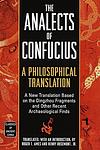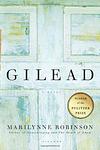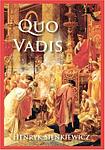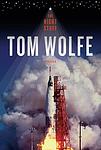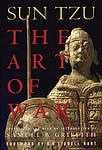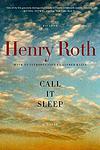The Greatest Books of All Time
Click to learn how this list is calculated.
This list represents a comprehensive and trusted collection of the greatest books. Developed through a specialized algorithm, it brings together 291 'best of' book lists to form a definitive guide to the world's most acclaimed books. For those interested in how these books are chosen, additional details can be found on the rankings page.
Genres
Countries
Date Range
Reading Statistics
Click the button below to see how many of these books you've read!
Download
If you're interested in downloading this list as a CSV file for use in a spreadsheet application, you can easily do so by clicking the button below. Please note that to ensure a manageable file size and faster download, the CSV will include details for only the first 500 books.
Download-
451. The Golden Bowl by Henry James
The Golden Bowl is a complex narrative that revolves around an American woman and her daughter who marry a father and son. The daughter's husband previously had a romantic relationship with the mother's husband, leading to a tense and intricate web of relationships. The novel explores themes of marriage, adultery, and familial bonds, and is renowned for its detailed characterization and intricate plot structure.
-
452. Death in Venice by Thomas Mann
"Death in Venice" is a novella that explores the life of Gustav von Aschenbach, a famous writer in his early fifties who embarks on a journey to Venice after experiencing a creative block. In Venice, he becomes obsessed with a beautiful Polish boy named Tadzio, whom he sees at the hotel where he is staying. Aschenbach's fascination with Tadzio becomes a metaphor for his own internal struggle with his repressed passions and his need for aesthetic beauty. The story culminates in Aschenbach's death as a cholera epidemic sweeps through Venice. His demise symbolizes the destructive power of his unfulfilled longing and his ultimate surrender to his repressed desires.
-
453. The Postman Always Rings Twice by James M. Cain
This novel is a thrilling tale of passion, murder, and betrayal. The story revolves around a drifter who becomes involved in an adulterous affair with a married woman. Together, they plot to kill her older husband for the insurance money. However, their plan spirals out of control, leading to unexpected consequences and a shocking conclusion. The narrative explores themes of lust, greed, and the destructive power of obsession.
-
454. Analects by Confucius
The Analects is a collection of sayings and teachings attributed to the Chinese philosopher Confucius and his disciples. The book emphasizes the importance of personal and societal morality, filial piety, and the cultivation of knowledge and virtue. Confucius stresses the importance of leading by example and treating others with respect and kindness. The Analects has had a profound impact on Chinese culture and philosophy, and its teachings continue to be studied and applied today.
-
455. The Third Policeman by Flann O'Brien
"The Third Policeman" is a darkly comedic and surreal novel about a nameless narrator who, after committing a murder to raise funds for his scholarly obsession with a bizarre pseudo-scientific theory, finds himself wandering in an eerie, nightmarish landscape. He encounters strange characters, including a pair of eccentric policemen who are obsessed with bicycles, and becomes embroiled in a series of increasingly absurd and ludicrous situations. The novel explores themes of existence, reality, and the nature of hell, with a twist ending that forces the reader to question everything they've read.
-
456. Waiting for the Barbarians by J M Coetzee
The novel is set in a small frontier town of an unnamed empire, where the magistrate lives a life of civil service and relative peace. His world is disrupted when the Empire declares a state of emergency due to rumors of barbarian uprising. The magistrate becomes a critic of the Empire's brutal and inhumane methods of dealing with the perceived threat, which leads to his arrest and torture. As he tries to understand his role in the vast political machinery, he also grapples with questions of power, justice, and humanity.
-
457. Austerlitz by W. G. Sebald
The novel follows the story of Jacques Austerlitz, an architectural historian who was brought to England on a Kindertransport from Czechoslovakia during World War II. As an adult, Jacques embarks on a journey to uncover his past, including his original identity, his parent's fate, and his own lost history. The narrative is a haunting exploration of memory, identity, and the lasting impact of the Holocaust.
-
458. Red Harvest by Dashiell Hammett
In this hard-boiled detective novel, a private investigator is hired by a newspaper publisher in a corrupt western town to uncover the truth behind the murder of a local worker. As he delves deeper into the investigation, he finds himself embroiled in a chaotic war between rival gangs, corrupt police, and greedy industrialists. The detective uses his cunning and manipulation to turn these factions against each other, leading to a bloody and violent resolution.
-
459. Ada or Ardor by Vladimir Nabokov
Set in an alternate universe where Earth is known as "Antiterra," the novel follows the lives of Ada and Van, two wealthy siblings who fall into a passionate and incestuous love affair. Their relationship evolves over a span of 70 years, as they navigate through family secrets, personal tragedies, and the complex nature of time. The book is a blend of romance, science fiction, and philosophical exploration, all told through the author's signature wordplay and intricate narrative style.
-
460. Nine Stories by J. D. Salinger
"Nine Stories" is a collection of short stories that delve into the complex inner lives of a variety of characters, often exploring themes of innocence, alienation, and the loss of innocence. Each story is unique, offering a glimpse into a different world or situation, but all are marked by the author's distinctive narrative voice and his ability to create compelling, deeply human characters. From a young boy dealing with the death of his brother to a World War II veteran struggling with PTSD, the stories are both profound and deeply affecting.
-
461. Gilead by Marilynne Robinson
The novel is a series of reflections written by an elderly dying pastor in 1956 in Gilead, Iowa, as a letter to his young son. The protagonist, John Ames, shares his family history, personal thoughts, and the struggles of his life, including the tension with his namesake and godson who returns to their small town. The book explores themes of faith, regret, and the beauty of existence, providing a profound meditation on life and death.
-
462. The Fountainhead by Ayn Rand
The novel presents the story of an innovative architect, who values his individualism and creativity above all else. He refuses to conform to traditional architectural designs, which leads to his struggle against a system that rewards mediocrity and conformity. Despite numerous setbacks and rejections, he remains true to his unique vision and principles. The book explores themes of objectivism, individualism, and capitalism, challenging the reader to consider the value of standing alone against the collective.
-
463. The Unnamable by Samuel Beckett
"The Unnamable" is a complex, stream-of-consciousness narrative that explores themes of existence, identity, and the nature of reality. The protagonist, who lacks a clear identity, is trapped in a void and continually questions his existence and reality. As he grapples with his own consciousness, he attempts to tell his story, but constantly doubts and revises it, creating a cyclical, fragmented narrative. The novel is known for its challenging, abstract prose and its exploration of existentialist themes.
-
464. Adam Bede by George Eliot
"Adam Bede" is a 19th-century novel set in rural England that explores the themes of love, betrayal, and moral responsibility. The story revolves around a hardworking carpenter, Adam Bede, who is in love with a vain but beautiful dairymaid, Hetty Sorrel. However, Hetty is seduced by a young, thoughtless squire, Arthur Donnithorne, which leads to her becoming pregnant. When Arthur abandons her, Hetty leaves her baby in the woods, where it dies, and she is subsequently charged with infanticide. Adam, devastated by Hetty's actions, finds solace and eventually love with a devout Methodist preacher, Dinah Morris. The novel ends with Adam and Dinah marrying, finding happiness after the tragedy.
-
465. The Varieties of Religious Experience by William James
This book is an exploration of the diverse range of religious experiences, from the mainstream to the mystical. The author applies a psychological and philosophical approach, examining the individual, personal experiences of spirituality rather than organized religion. The book covers topics such as conversion, saintliness, and mysticism, and argues that religious experiences, rather than religious institutions, should be the primary focus of religious study.
-
466. Quo Vadis by Henryk Sienkiewicz
Set in ancient Rome during the reign of Emperor Nero, "Quo Vadis" follows the love story of a young Christian woman Lygia and a Roman patrician, Marcus Vinicius. As their relationship blossoms, they must navigate the dangerous political climate of the time, marked by Nero's tyranny and the growing influence of Christianity. The novel provides a vivid depiction of the clash between pagan Rome and the early Christian church, culminating in the Great Fire of Rome and subsequent persecution of Christians.
-
467. The Right Stuff by Tom Wolfe
"The Right Stuff" is a non-fiction novel that explores the lives and experiences of the first Project Mercury astronauts selected for the NASA space program in the 1960s. The book delves into the personal and professional lives of these astronauts, highlighting their courage, competitiveness, and the immense pressure they faced. It also provides a detailed account of the space race between the United States and the Soviet Union during the Cold War era.
-
468. Breakfast at Tiffany's by Truman Capote
This classic novella explores the life of a young writer in New York City and his relationship with his neighbor, a charismatic and eccentric woman who lives off the generosity of wealthy men. The woman, who dreams of a life of luxury and freedom, captivates the writer with her charm and mystery. The story is a poignant examination of love, friendship, identity, and the struggle for personal freedom in a society bound by conventions.
-
469. The Art of War by Sun Zi
This ancient Chinese military treatise, written by a renowned general and military strategist, is a comprehensive guide on military strategy and tactics. It covers various aspects of warfare, from planning and preparation to execution and aftermath. The work emphasizes the importance of understanding one's enemy, using deception, and adapting to changing circumstances. It also stresses the importance of terrain, morale, and leadership. Despite its military focus, its principles have been applied to business, politics, and other fields, making it a timeless classic on strategy.
-
470. The Bluest Eye by Toni Morrison
The novel is a poignant tale of an African American girl named Pecola Breedlove who grows up during the years following the Great Depression. Living in a society that values beauty in terms of light skin and blue eyes, Pecola develops an inferiority complex and wishes for blue eyes, believing that it would make her beautiful and loved. The story explores themes of racial self-loathing, the standards of beauty, and the dynamics of power and oppression.
-
471. Call It Sleep by Henry Roth
This novel tells the story of a young Jewish boy, David Schearl, who immigrates to New York City with his mother in the early 20th century. The narrative explores David's struggles to understand his harsh father, his experiences with anti-Semitism and poverty in the Lower East Side, and his journey of self-discovery through his vivid imagination. The boy's fears and dreams are depicted through a stream-of-consciousness narrative technique, providing a powerful exploration of the immigrant experience and the harsh realities of the American dream.
-
472. The Way We Live Now by Anthony Trollope
The book is a satirical analysis of the moral corruption in London during the 1870s. It centers around Augustus Melmotte, a fraudulent financier, who moves his family to London in an attempt to climb the social ladder. His daughter, Marie, falls in love with Sir Felix Carbury, a penniless playboy, while his wife is desperate to be accepted into London society. The book explores themes of wealth, power, love, and greed, and is a biting critique of the era's obsession with status and money.
-
473. The Betrothed by Alessandro Manzoni
"The Betrothed" is a historical novel set in Lombardy, Italy during the 17th century, in the midst of political and religious turmoil. The story follows the journey of two peasants, Renzo and Lucia, who are in love and wish to marry. However, their plans are thwarted by a corrupt local baron who desires Lucia for himself, and a cowardly priest who refuses to stand up to the baron. The couple are forced to flee, facing numerous hardships and adventures, while their faith and love for each other are continually tested. The novel explores themes of love, faith, and the struggle for justice.
-
474. Cloud Atlas by David Mitchell
This novel is a unique blend of six different stories, each set in a different time and place, spanning from the 19th century South Pacific to a post-apocalyptic future. Each tale is written in a different style, reflecting the time and setting it represents, and they are all connected through shared themes and recurring motifs. The stories are nested within each other, with each interrupted by the next, only to be concluded in the second half of the book. The novel explores themes of predacity, civilization, reincarnation and the eternal recurrence of the same behaviors throughout history.
-
475. The Book of Disquiet by Fernando Pessoa
"The Book of Disquiet" is a posthumously published collection of thoughts and musings of a solitary dreamer, who is a Lisbon-based bookkeeper. The book delves into the mind of a man who is discontented with his mundane life and finds solace in dreaming and writing. The narrative is a profound reflection on life, solitude, and the nature of humanity, filled with philosophical insights and poetic language. The protagonist's introspective journey and his struggles with existential despair make it a seminal work in the genre of literary modernism.
Reading Statistics
Click the button below to see how many of these books you've read!
Download
If you're interested in downloading this list as a CSV file for use in a spreadsheet application, you can easily do so by clicking the button below. Please note that to ensure a manageable file size and faster download, the CSV will include details for only the first 500 books.
Download


